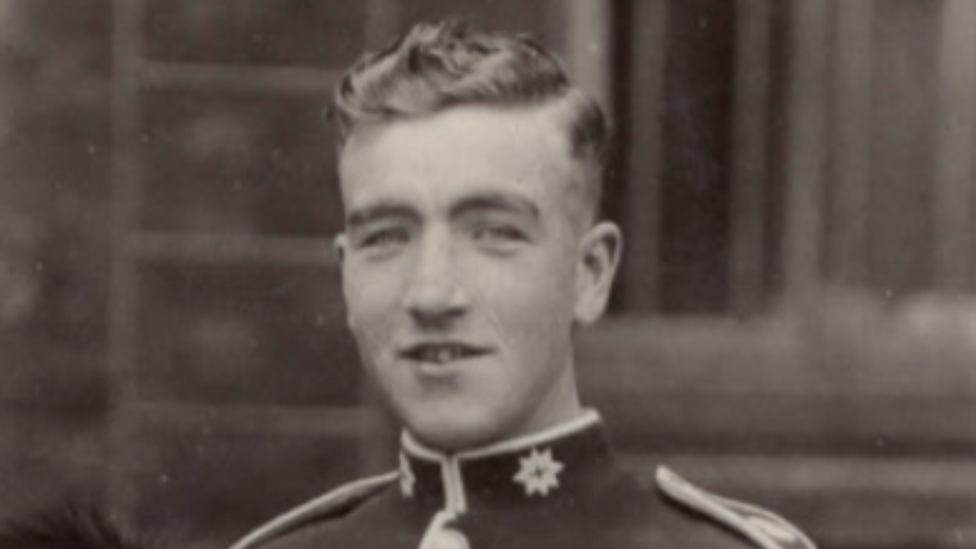WW2 soldier's remains found in Normandy, son told
- Published
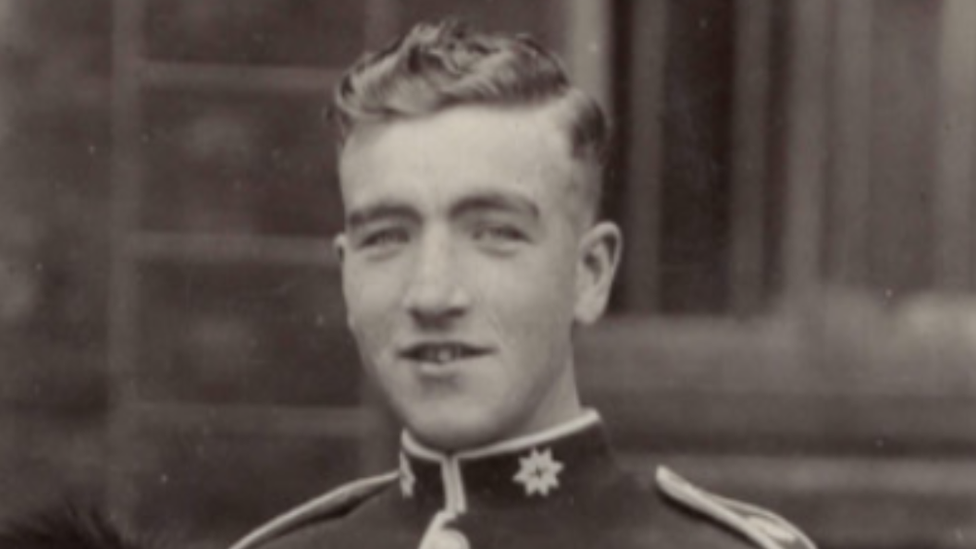
Guardsman David Blyth was reported missing in action in August 1944
A man has been told human remains found in France are those of his tank driver father killed in World War Two.
Guardsman David Blyth, 25, was posted as missing in action during the Battle of Normandy, which followed D-Day, on 4 August 1944.
His Sherman Tank was destroyed but his body was never identified - until now.
Son Peter, 82, from East Yorkshire, said: "79 years and one month after he was killed, we have found him."
He added: "I don't think it's really sunk in yet."
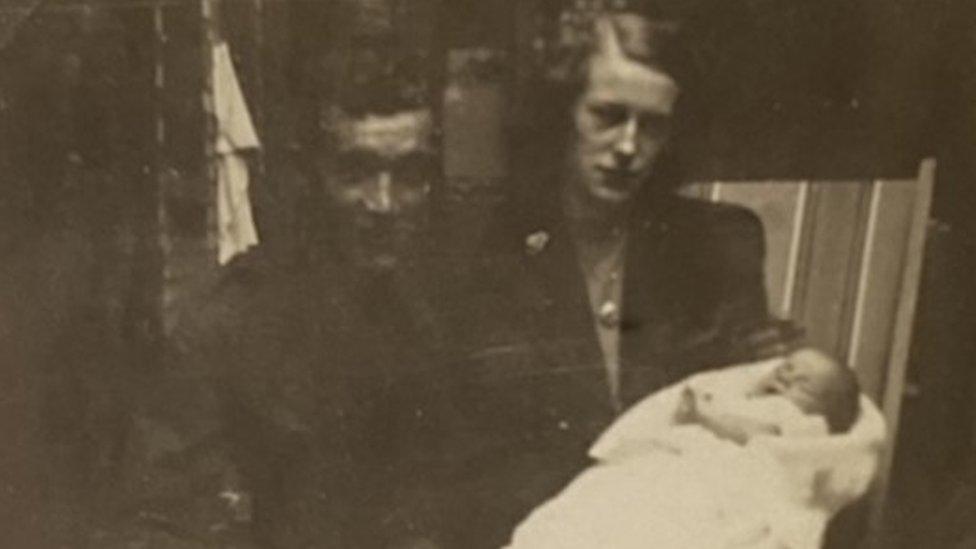
Guardsman David Blyth with wife Mary and their son Peter
Guardsman Blyth and another fallen comrade, Guardsman William Bayliss, 22, from Leicestershire, whose remains were discovered at the same time, will be reinterred with full military honours on 19 September.
Mr Blyth explained there had been "so many ups and downs" in the search for his missing father.
Bone fragments, along with the debris of a tank, were discovered by a farmer ploughing a field near La Marvindière in 2015.
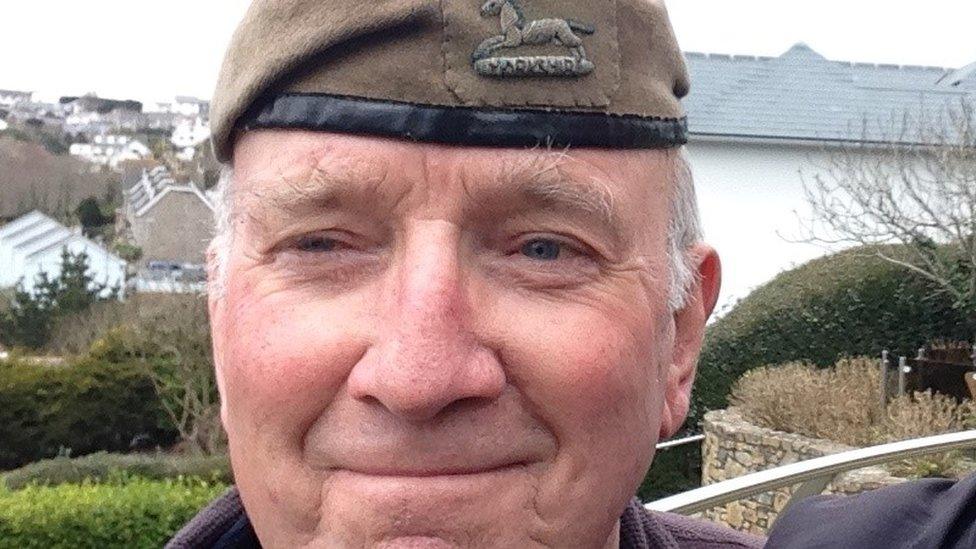
Retired Major Peter Blyth has spent his life searching for information about his father
Due to the Sherman being from the United States, it was presumed the remains were those of US servicemen so were sent there.
They were returned to the UK shortly afterwards when it was established British crews were using that type of tank, in that area, at that time.
Last year, Mr Blyth was informed by the Ministry of Defence's Joint Casualty and Compassionate Centre, which investigates human remains found on old battlefields, that tests showed the remains were not those of his father.
However, further tests - using DNA provided by Mr Blyth - have now yielded a match.
"I don't tend to wear my heart on my sleeve," he said. "But it's been emotional."
According to Army records, Guardsman Blyth signed up to the Army for four years' service in August 1937.
"But of course mad old Adolf started a war so he was required to stay in," said Mr Blyth.
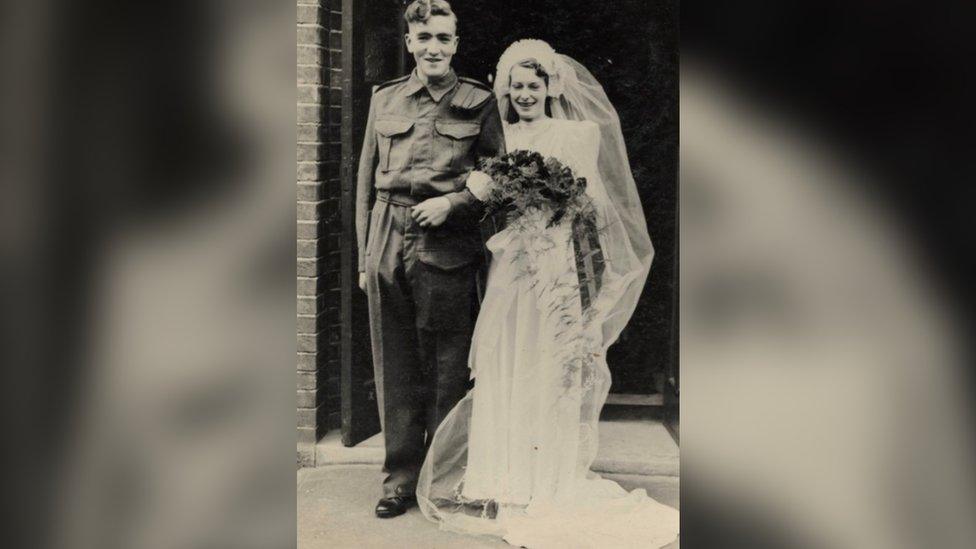
Guardsman David Blyth and his wife Mary on their wedding day
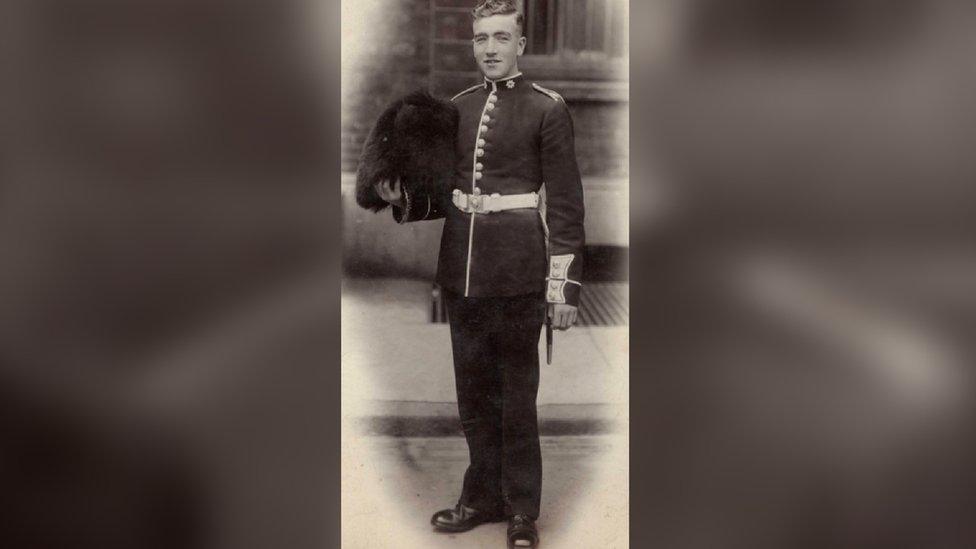
Guardsman David Blyth of 1st (Armoured) Battalion, The Coldstream Guards
Mr Blyth told how his mother Mary, who never remarried, died in 1988, aged 68, without ever knowing what had happened to her husband.
He said: "I think she always expected to him to walk through the door and say, 'What's for tea then, love?'"
In 1947, two years after the war ended, the decision was made to send Lincolnshire-born Mr Blyth to live with his paternal grandparents in Sutton-on-Hull in East Yorkshire.
"No-one really talked about my father," he said. "But I remember his scarlet tunic [dress uniform] being kept under the stairs. I wear one of the buttons on my blazer to this day."
Desperate to feel closer to his missing father, Mr Blyth followed in his footsteps and joined the Army, rising up through the ranks and retiring as a major after a 45-year career that saw him serve in conflict zones such as Aden, Northern Ireland and Bosnia.
"I'd like to think my father would be proud of me," he said.
"I have three letters he wrote to my mother," he said. "Before, they were just letters sent from a man to a woman who just happened to be my mother. They somehow seem more emotional now I know he's been found.
"Reading one of them I hadn't read before, it was a good job it was written in pencil."
The BBC is awaiting a response from the Ministry of Defence.

Follow BBC East Yorkshire and Lincolnshire on Facebook, external, Twitter, external, and Instagram, external. Send your story ideas to yorkslincs.news@bbc.co.uk, external.
Related topics
- Published6 June 2024
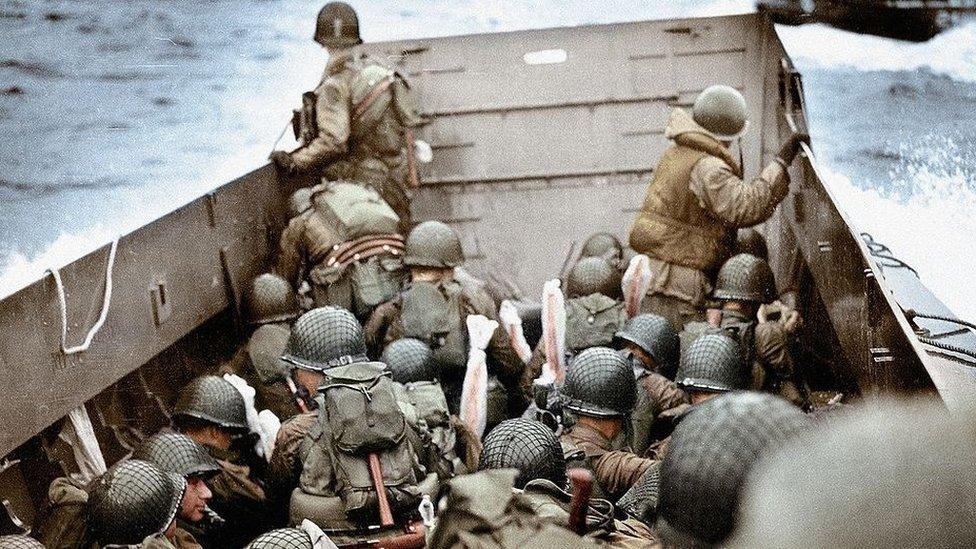
- Published9 August 2022

- Published8 July 2022
